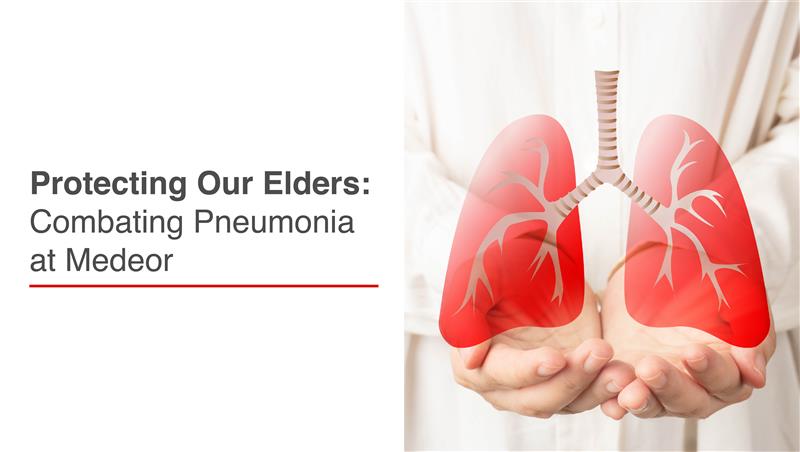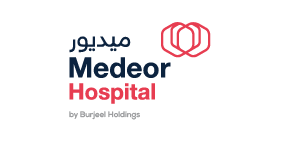World Pneumonia Day serves as an important reminder of the health challenges faced by our aging population. As our loved ones grow older, they become increasingly susceptible to dangerous respiratory infections like pneumonia. At Medeor, we see it as our duty as skilled medical professionals to educate and empower communities to protect their vulnerable seniors.
Pneumonia is an inflammation of the lungs typically caused by bacterial or viral infections. While it can affect people of any age, the risk increases significantly for elderly individuals. Changes to the immune system, underlying chronic conditions, and reduced lung function all contribute to the heightened vulnerability of aging adults to pneumonia.
Pneumonia can have serious consequences for seniors, often leading to extended hospital stays and impacting overall health. Recovery can be challenging, as pneumonia may worsen existing health conditions and leave lasting effects on respiratory function. For older adults, it’s essential to prioritize preventive measures and early treatment to minimize the risks associated with this illness.
Fortunately, there are steps we can take to protect our elders from this dangerous illness. Chief among them is ensuring that older adults receive the recommended pneumococcal and influenza vaccinations. These safe, effective immunizations can significantly reduce the risk of contracting potentially deadly strains of pneumonia. Additionally, promoting healthy habits like regular handwashing, avoiding contact with sick individuals, and not smoking can further strengthen respiratory defenses.
For seniors already affected by pneumonia, prompt treatment with antibiotics and respiratory support is crucial. At Medeor, our healthcare providers remain vigilant in screening for signs of infection and responding decisively. Families can also play a vital role by monitoring seniors for concerning symptoms and advocating for timely, appropriate care.
As we reflect on World Pneumonia Day, let us recommit ourselves at Medeor to protecting the health and well-being of aging populations. Through education, vaccination, and attentive medical care, we can safeguard our elders from the effects of this serious respiratory disease. In doing so, we honor the invaluable wisdom and life experiences they contribute to our communities.





